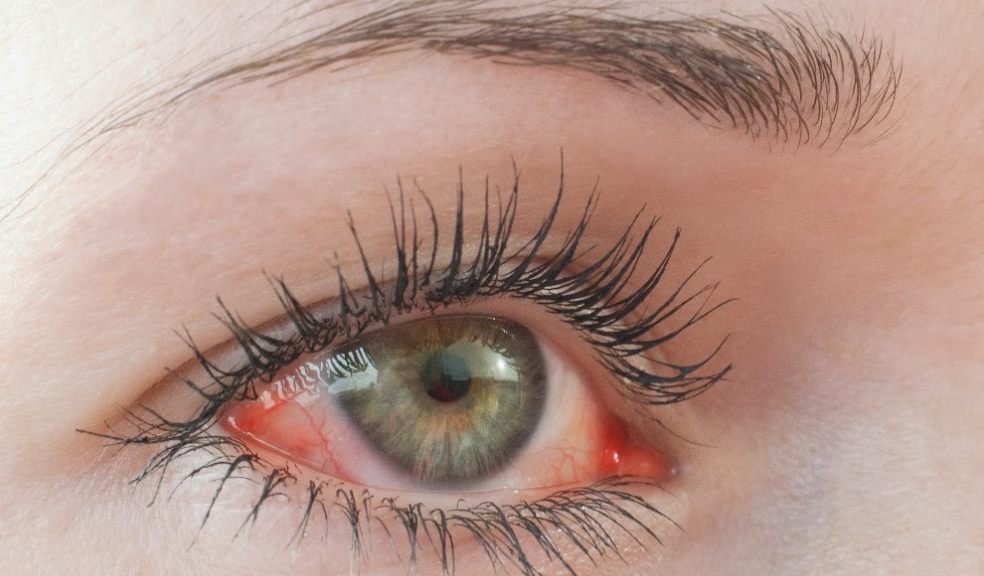
5 Hay fever hacks for keeping red, itchy eyes at bay
With Allergy Awareness Week (20th April – 25th April 2022) upon us, we asked vision experts from Essilor.co.uk for advice on how the UK’s 13 million hay fever sufferers can keep eyes feeling healthier this summer.
For the 25 per cent of British adults who suffer from hay fever, April and Allergy Awareness Week mark the start of a season of misery. Whilst friends and family are firing up the barbie and outdoor pizza ovens, people who experience hay fever symptoms are dodging the outdoors for fear of exacerbating their itchy, red, watery eyes.
According to Google Trends data searches relating to Hay Fever sore eyes have risen every year in the past 10 years – showing the growing issue and need for health advice.
Dr Andy Hepworth from Essilor.co.uk, explains: “Hay fever is a seasonal form of allergic rhinitis which affects one in four people in the UK. It is caused by an allergic reaction to pollen from grass, trees and weeds during the spring and summer months.
It’s an extremely common issue that affects the eyes, resulting in itchiness, irritation, watery eyes, and redness. (There are also people who are affected by perennial rhinitis who suffer from an allergic reaction to allergens such as dust and mould all year round – this advice can be applied to them too.
“Itchy eyes occur due to irritation from pollen or another allergen landing on or near your eye. Once your eyes are itchy, they tend to become red due to an inflammatory response trying to fight off the irritant.
“Redness can also occur from rubbing your eyes, which will only increase the irritation. You may also experience watery eyes – this is the body’s way of trying to flush out the irritant, by producing excess tears.
“Swollen or puffiness is also another common and unwanted side effect in hay fever and allergy sufferers. This is because inflammation brings more fluid into the tissue areas affected.”
How to ease eyes affected by hay fever
Wear wrap around glasses and a wide brim hat
The allergens that make our eyes itchy and sore are impossible to see – it’s therefore easy for them to play havoc with our eyes. Wrap around glasses or sunglasses are helpful at keeping pesky pollen from reaching the eyes. As particles are airborne these can limit the opportunity for pollen and irritants to reach the surface of the eye.
Add a barrier as a reminder not to rub or touch eyes
When pollen gets into the eyes, rubbing itchy eyes is a natural reflex, but it only gives temporary relief and can increase the inflammation and amount of pollen entering the eye from hands. Here again, wearing glasses can help to act as a barrier between our hands and eyes – acting as a reminder not to touch or rub your eyes.
Rinse and repeat
A cold compress will provide some welcome relief for eyes that are itchy and irritated. It will also help to reduce swelling. Just soak a face cloth or towel in cold water and leave it in the fridge to cool down. Then sit back and relax whilst it gets to work. Repeat this through the day to prevent eyes getting too sore. You could even pack wet cloths in a Tupperware to use throughout the day if out an about.
Wash more regularly – hands, hair, clothes, bedding
Pollen can get everywhere, so more frequent washing can help to prevent it reaching your peepers. You should also wash your face and hair at the end of the day too and keep your pyjamas in a drawer for when you go to bed. This will avoid them picking up any particles which could affect your eyes whilst you sleep.
Keep an eye on symptoms
If you are eyes are red, itchy, and painful for a long period of time then you really should visit your optician for a check-up. Conjunctivitis is a common eye condition that can be caused by an allergen such as pollen setting off a reaction that affects the conjunctiva of the eye. This is the clear, thin layer that covers the front surface of the eye and the inner surface of the eyelids. The conjunctiva can become inflamed and irritated.
Dr Hepworth adds: “Whilst spring and summer is the ideal time to get outside and enjoy the sunshine, it does bring with it short-term eye issues particularly for allergy sufferers that can cause considerable discomfort. Hopefully, these tips can provide some relief this hay fever season, allowing as many people as possible to enjoy the warmer, longer days. A final sensible point is to ensure whilst outdoors you afford your eyes protection from UV, by using glasses, sunglasses or UV protecting Contact Lenses.”













